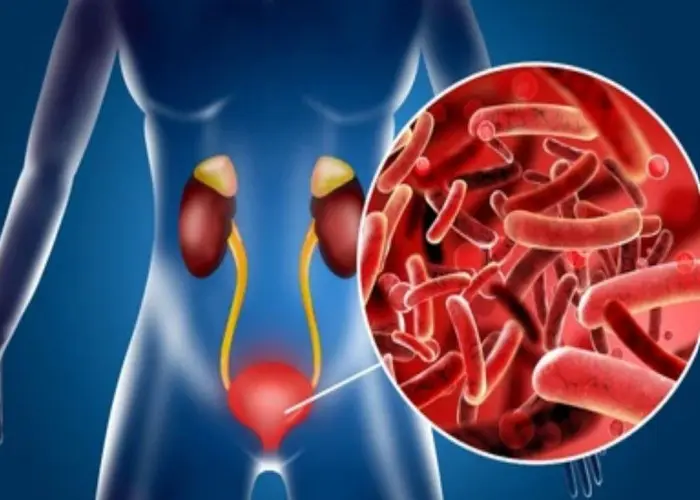 Welcome
Welcome
“May all be happy, may all be healed, may all be at peace and may no one ever suffer."
Bird flu (avian influenza)

Bird flu, or avian influenza, is a viral infection that primarily affects birds, but in rare cases, it can also infect humans. The virus is spread by contact with infected birds or their droppings, saliva, or respiratory secretions. Symptoms in humans may include fever, cough, sore throat, muscle aches, and respiratory problems. In severe cases, it can lead to life-threatening complications, such as pneumonia or acute respiratory distress syndrome. Treatment for bird flu may include antiviral medication, and supportive care to relieve symptoms and prevent complications. Preventative measures, such as avoiding contact with sick birds, practicing good hygiene, and properly cooking poultry products, can help reduce the risk of infection.
Research Papers
Disease Signs and Symptoms
- Cough
- Fever
- Sore throat
- Muscle pain
- Headaches
- Shortness of breath (dyspnea)
Disease Causes
Bird flu (avian influenza)
Bird flu occurs naturally in wild waterfowl and can spread into domestic poultry, such as chickens, turkeys, ducks and geese. The disease is transmitted via contact with an infected bird's feces, or secretions from its nose, mouth or eyes.
Open-air markets, where eggs and birds are sold in crowded and unsanitary conditions, are hotbeds of infection and can spread the disease into the wider community.
Undercooked poultry meat or eggs from infected birds can transmit bird flu. Poultry meat is safe to eat if it's been cooked to an internal temperature of 165 F (74 C). Eggs should be cooked until the yolks and whites are firm.
Disease Prevents
Bird flu (avian influenza)
Bird flu vaccine
The Food and Drug Administration has approved one vaccine to prevent infection with one strain of H5N1 bird flu virus. This vaccine isn't available to the public, but the U.S. government is stockpiling it and will distribute it in the event of an outbreak.
This vaccine could be used early in such an outbreak to provide limited protection until another vaccine — designed to protect against the specific form of the virus causing the outbreak — is developed and produced. Researchers continue to work on other types of bird flu vaccines.
Recommendations for travelers
If you're traveling to Southeast Asia or to any region with bird flu outbreaks, consider these public health recommendations:
- Avoid domesticated birds. If possible, avoid rural areas, small farms and open-air markets.
- Wash your hands. This is one of the simplest and best ways to prevent infections of all kinds. Use an alcohol-based hand sanitizer containing at least 60 percent alcohol when you travel.
- Ask about a flu shot. Before traveling, ask your doctor about a flu shot. It won't protect you specifically from bird flu, but it may help reduce the risk of simultaneous infection with bird and human flu viruses.
Poultry and egg products
Because heat destroys avian viruses, cooked poultry isn't a health threat. Even so, it's best to take precautions when handling and preparing poultry, which may be contaminated with salmonella or other harmful bacteria.
- Avoid cross-contamination. Use hot, soapy water to wash cutting boards, utensils and all surfaces that have come into contact with raw poultry.
- Cook thoroughly. Cook chicken until the juices run clear, and it reaches a minimum internal temperature of 165 F (74 C).
- Steer clear of raw eggs. Because eggshells are often contaminated with bird droppings, avoid foods containing raw or undercooked eggs.
Disease Treatments
Many influenza viruses have become resistant to the effects of a category of antiviral drugs that includes amantadine and rimantadine (Flumadine). Health officials recommend the use of oseltamivir (Tamiflu) or, if oseltamivir can't be used, zanamivir (Relenza). These drugs must be taken within two days after the appearance of symptoms.
Disease Diagnoses
Disease Allopathic Generics
Disease Ayurvedic Generics
Disease Homeopathic Generics
Disease yoga
Bird flu (avian influenza) and Learn More about Diseases

Thalassemia

Multisystem inflammatory syndrome in children (MIS-C)

Thoracic outlet syndrome

Nicotine dependence

Cystitis

Median arcuate ligament syndrome (MALS)

Orthostatic hypotension (postural hypotension)

Zika virus
Bird flu, Avian influenza, H5N1, বার্ড ফ্লু, এভিয়ান ইনফ্লুয়েঞ্জা
To be happy, beautiful, healthy, wealthy, hale and long-lived stay with DM3S.
